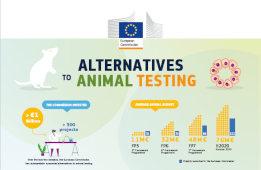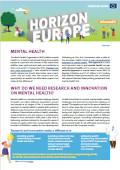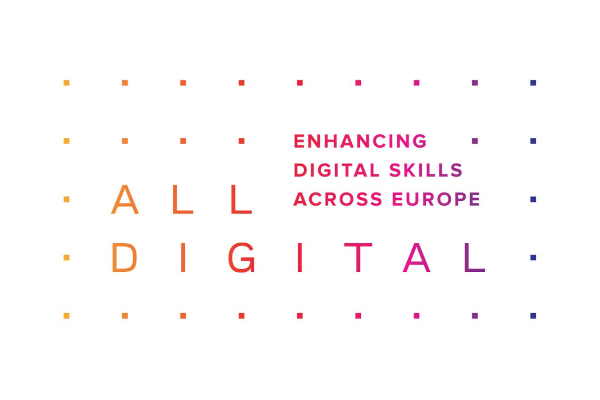EU research in public health
Public health research fields include health, environment and lifestyle, mental health, foresight, health systems and services, research for maternal and child health and global health.
Under Horizon 2020, the EU's research and innovation funding programme, we are addressing priorities for public health research funding in these fields in Europe and worldwide, including in low-or middle-income countries.
Challenges influencing public health
- demographic changes and ageing population
- increasing need to use resources efficiently
- demand for new skills in health professionals
- globalisation of health issues
- non-communicable disease epidemic
- shift of focus from treatment to prevention
Public health policies aim to sustain population-wide health improvement and reduce health inequalities.
Public health research plays a key role in providing the evidence base needed to support the development and monitoring of health policies.
Health, environment and lifestyle
Despite the known benefits of physical activity and healthy nutrition, estimates indicate that, in Europe, more than one quarter of adults aren't active enough. This represents an enormous personal, social and economic burden for EU citizens, national health care systems, and the EU economy.
Mental health
More than 1 in 3 Europeans experience mental health problems in any given year, and even more are affected indirectly. The costs in Europe have been estimated at €461 billion per year.
People with mental health problems do not have sufficient access to mental health services that can help meet their needs.
Horizon 2020 has funded mental health research for a total of €543 million.
Foresight
Foresight is a process of thinking through alternative variants of the future, with the aim to improve policy choices and decisions. In the European Commission's policy cycle, foresight comes at an early stage, well before decisions are taken or priorities are set.
Health systems and services
Health systems must adapt effectively to changing environment, and tackle significant challenges with limited resources: changing demographics and burden of disease, advances in biomedical research, health technologies and personalised medicine, and the availability of large data sets.
Maternal and child health
In 2015, estimated 216 women died per 100,000 live births, and 45% of total deaths among children under five occurred in the first month of life. Leading causes of death in under-five children are preterm birth complications, pneumonia, birth asphyxia, diarrhea, malaria, and malnutrition.
These deaths are disproportionately concentrated in low and middle-income countries, but maternal and child health in Europe and other high-income countries is similarly challenged by growing health inequities.
Lifestyle-related conditions that are prevalent in high-income countries (e.g. obesity, diabetes, hypertensive disorders) also negatively influence pregnancy and child development.
Global Health
Global health research contributes to reducing the growing inequities in health, notably in terms of access, availability, affordability and acceptability of quality health care. The Sustainable Development Goal 3, adopted by the United Nations summit in September 2015, is dedicated to improving global health by ensuring healthy lives and promoting well-being for all at all ages.
Alternatives to Animal Testing
In 2020, a total of 7.9 million animals were used for research, training, education, and regulatory purposes in the EU (excluding the UK) and Norway.
Over the past two decades, the European Commission has invested more than €1 billion in 300 research projects focused on alternative methods to animal testing, resulting in significant advancements in tools and methods employed for regulatory assessments and scientific research, in particular in the area of biomedical research.
The ultimate goal of the EU is to reduce animal testing by promoting multidisciplinary research and digital innovations for advanced tools, methods, models, and data analysis capacities.
Funding opportunities
Funding for health under the research and innovation framework programme, Horizon Europe
Projects and results
Projects in the field of public health research on the Commission's primary portal for results of EU-funded research projects
Stories of particularly successful EU-funded research projects
Platform where framework programme funding recipients present their results to search, contact their owners and form partnerships
Collaboration and jobs
Look for project partners and view profiles of all organisations that have received funding via the funding and tender opportunities portal
Researcher jobs in related fields
Scientific publications, tools and databases
Interactive reporting platform, composed of a set of sheets that allows series of views to discover and filter the EC's funding programmes data.
Scientific publications produced by the European Commission (JRC)
Single point of access to open data produced by the EU institutions. All data free to use for commercial and non-commercial purposes
You can access all scientific publications from Horizon 2020 via OpenAIRE
Publications

Changing the paradigm in safety testing of chemicals and drugs and developing efficient complementary tools for biomedical research.
Factsheets

A comprehensive approach to mental health is needed with policies in different areas to improve mental health and support resilience. These include policies in health, education, social protection, arts and culture, or employment.



